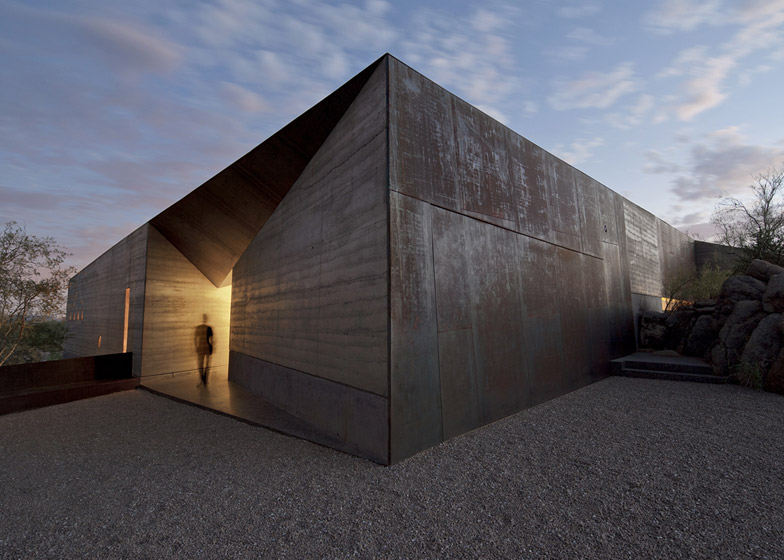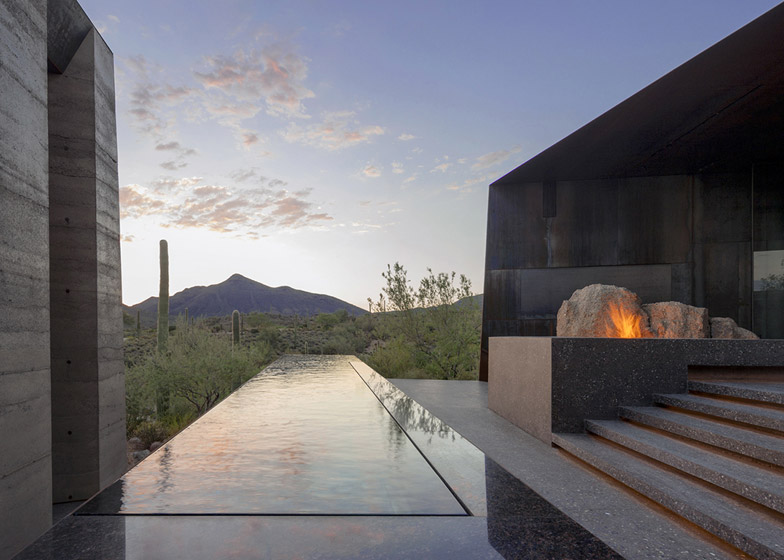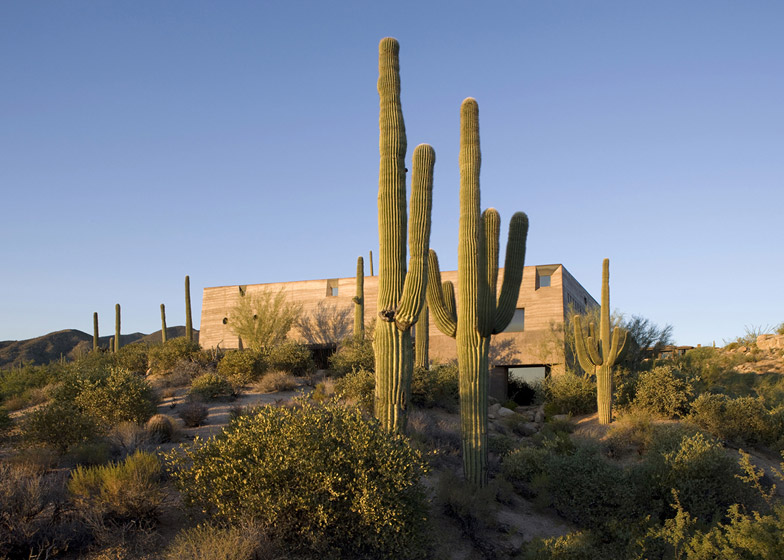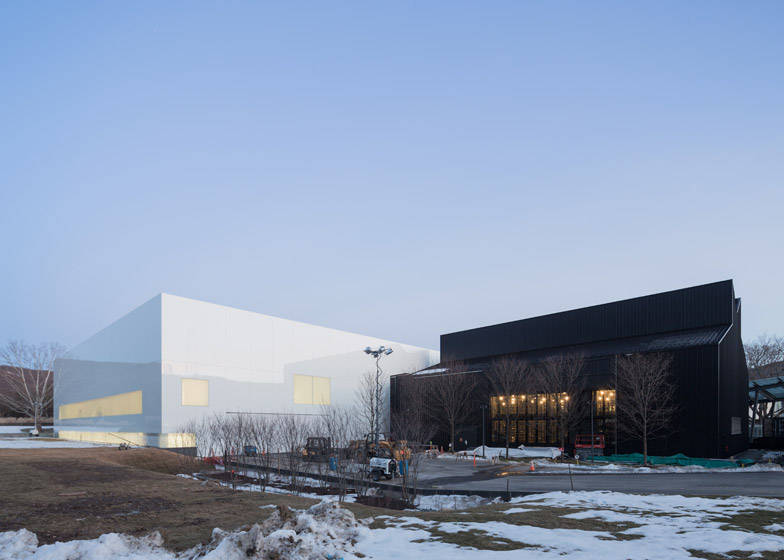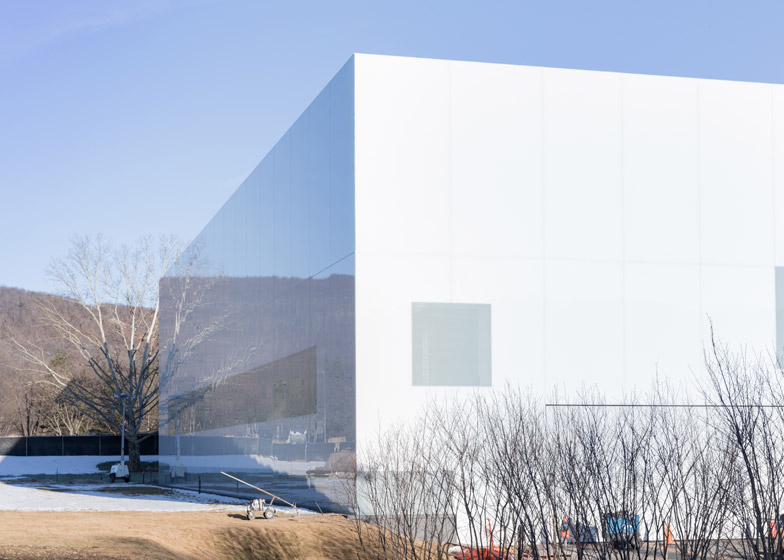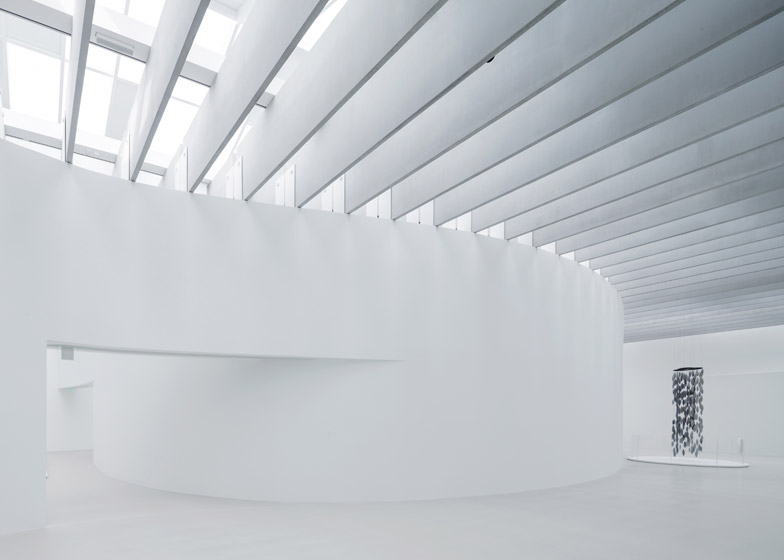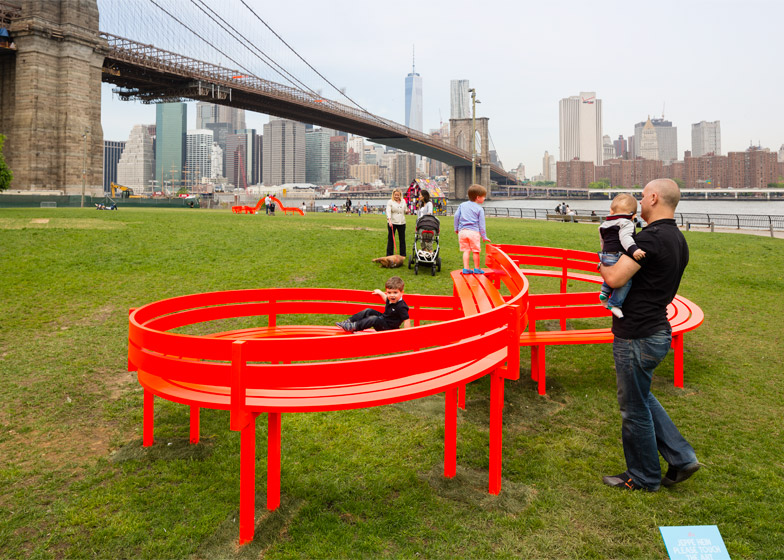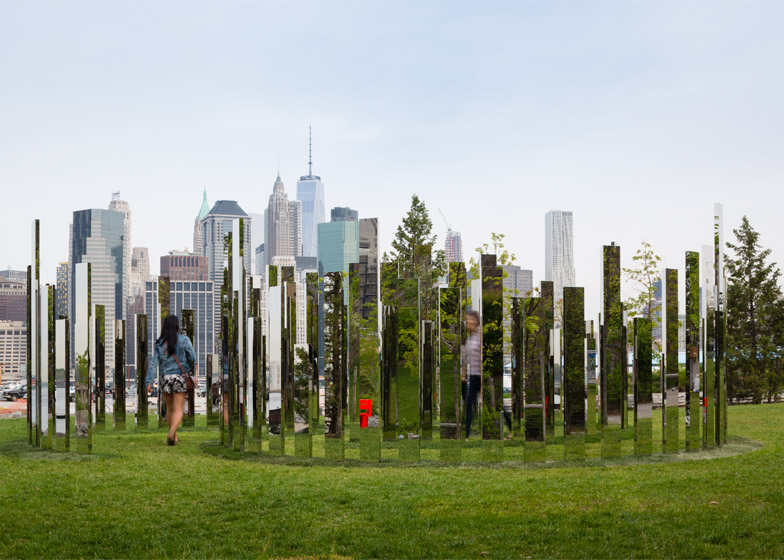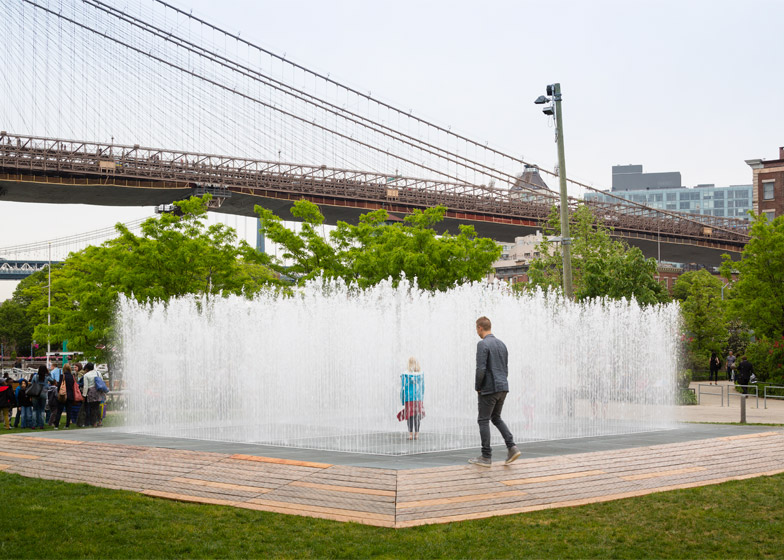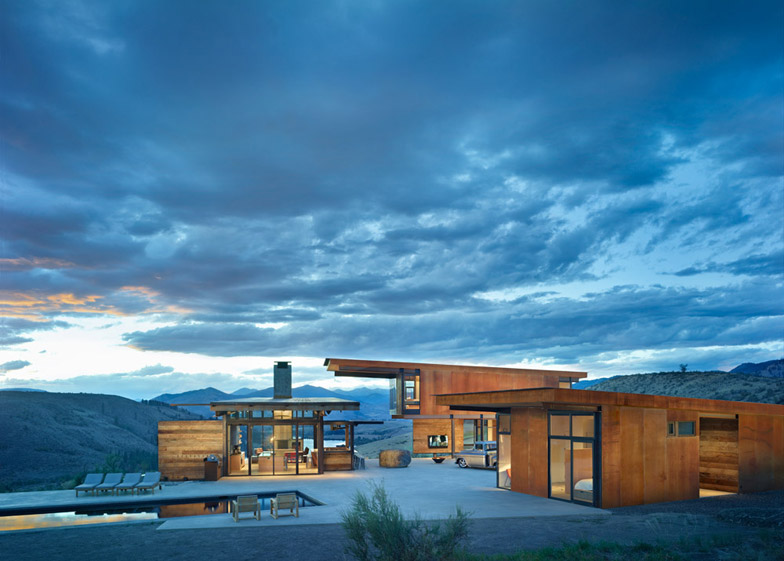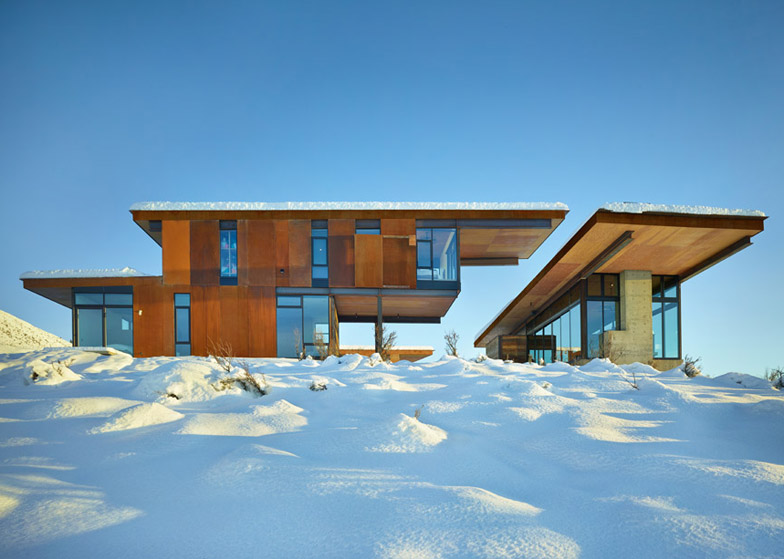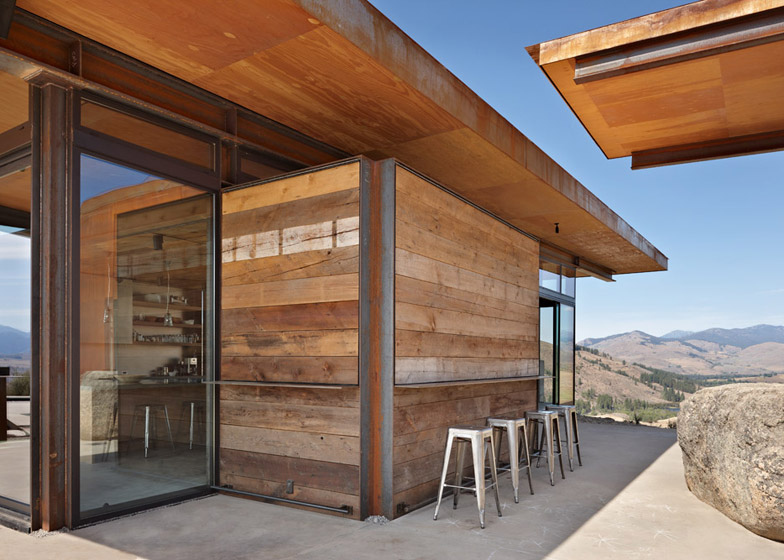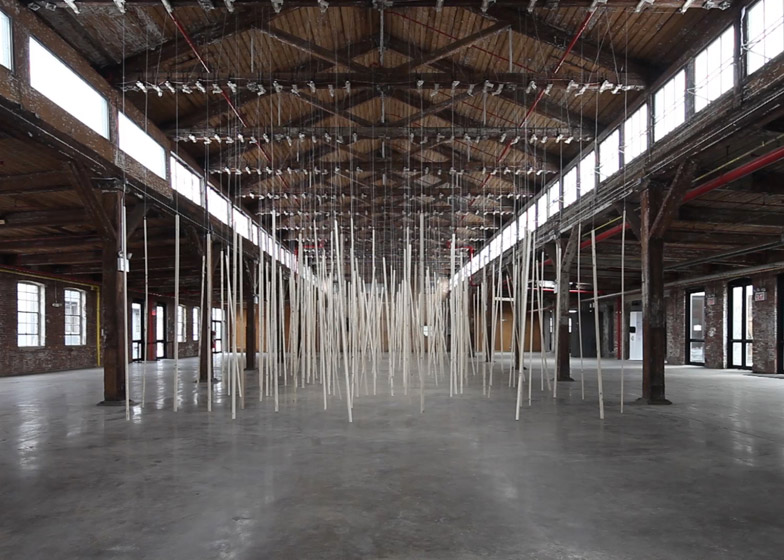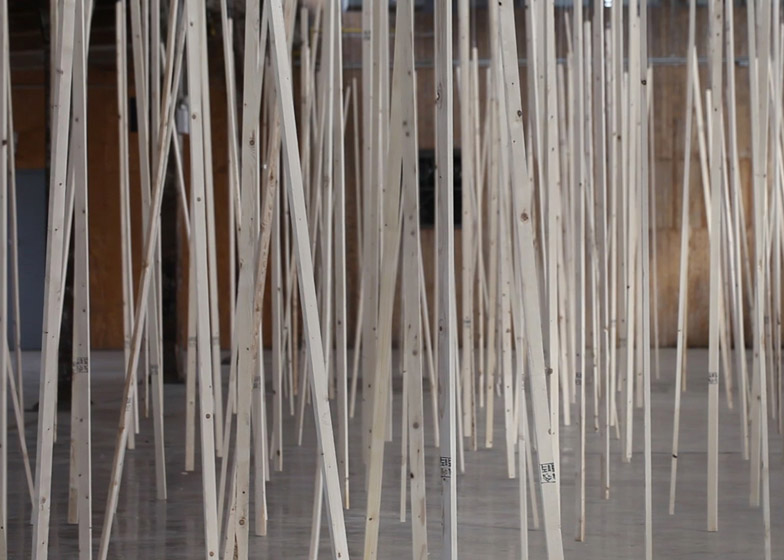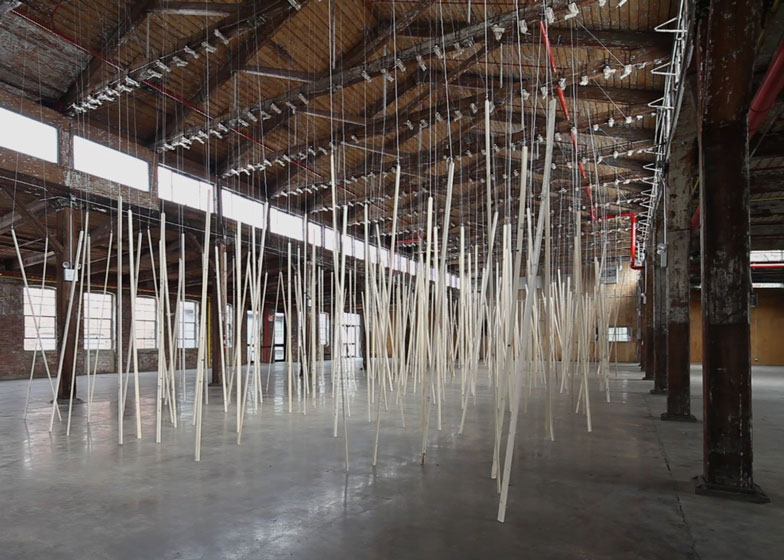Following the opening of our New York office in May, we're celebrating American Independence Day with a roundup of Dezeen's favourite US projects from the past year, including a house with walls built from soil, a remote family retreat and a noisy installation in a New York factory (+ slideshow).
Phoenix-based architecture firm Wendell Burnette used soil from the surrounding desert site and covered it with steel sheets to construct the walls of their Desert Courtyard house.
"We wanted the house to recede like a shadow into the landscape and a good way of doing that is allowing the surfaces to weather so the rust and patina help achieve a form that's fairly anonymous and doesn't give much away," Burnette told Dezeen.
Tom Phifer appropriately added an opaque glass exterior to his design for the fourth wing of the Cornig Museum of Glass in New York.
Curved walls designed to "dissolve the separation between the art, atmosphere, light and space" define five different gallery areas, each dedicated to showcasing contemporary glassworks.
The reflective white structure sits among three existing buildings by Gunnar Birkerts, Smith-Miller + Hawkinson and Wallace K Harrison.
"It became immediately clear that our new addition must forge a deep connection with the existing museum buildings and serve as a central and clarifying structure on the Corning campus," Phifer told Dezeen.
18 sculptures including abstract park benches and a maze constructed of mirrors were installed at Brooklyn Bridge Park by Danish artist Jeppe Hein, for an exhibition entitled Please Touch The Art.
"Instead of the respectful distance demanded in museums, Hein's work invites participation," said Nicholas Baume, director and chief curator for the Public Art Fund who supported the exhibition.
Washington's mountainous Methow Valley is the setting for Tom Kundig's family retreat – a building made up of four structures that are situated around a giant rock like a "campsite".
Clad in pre-rusted steel, the building is designed to be suitable for all four seasons and was chosen as one of the American Institute of Architects top 10 housing projects of the last year.
"It's like a little campground, and you go from tent to tent," Kundig told Dezeen. "The materials are tough on the outside, because of the high-desert climate, but the inside is cozy, like getting into a sleeping bag – protected, warm, and dry."
250 wooden poles on thin ropes were hung from the ceiling of an old factory building in Queens for an installation by Swiss artist Zimoun.
Each length of rope was connected to an electric motor that raised and dropped the laths at different intervals, creating a sea of uneven movement and cacophony of thuds.
"Through this system, all laths are in motion and generate complex visual and acoustic patterns, rhythms and structures," Zimoun explained.

